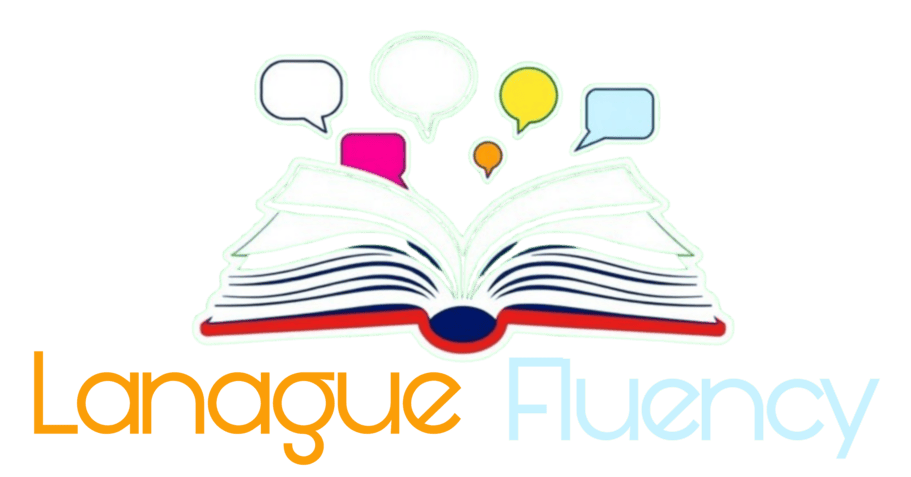Why Learning a New Language is Important

Learning a new language opens up a world of opportunities for personal and professional growth. It enhances cognitive abilities, such as problem-solving skills, creativity, and memory retention. By immersing yourself in a different language, you gain a deeper understanding of diverse cultures and perspectives, fostering empathy and global awareness. Furthermore, being multilingual can boost your career prospects, as many employers value language skills in an increasingly globalized job market.
In addition, learning a new language can improve your communication skills and confidence. It allows you to connect with people from different backgrounds, breaking down barriers and building meaningful relationships. Mastering a new language also provides a sense of accomplishment and boosts self-esteem. It challenges your brain to think in different ways, enhancing multitasking and decision-making abilities. Overall, learning a new language is a rewarding and enriching experience that can open doors to endless possibilities.
Setting Realistic Goals for Language Learning
Setting realistic goals for language learning is crucial for maintaining motivation and making progress in your language acquisition journey. When setting goals, it’s important to consider your current level of proficiency, the amount of time you can dedicate to studying each day, and your ultimate objectives for learning the language. By breaking down your larger language learning goals into smaller, achievable milestones, you can track your progress more effectively and stay motivated along the way.
It’s essential to be honest with yourself about what you can realistically achieve within a given timeframe. Setting overly ambitious goals can lead to frustration and burnout, while setting goals that are too easy may result in a lack of challenge and slow progress. By finding a balance between challenging yourself and setting achievable objectives, you can create a roadmap for your language learning journey that is both motivating and rewarding.
Choosing the Right Language to Learn
When it comes to choosing the right language to learn, it’s important to consider your personal interests and goals. Think about why you want to learn a new language and how you plan to use it in your daily life. Are you interested in traveling to a specific country? Do you want to connect with relatives who speak a different language? Identifying your motivation can help guide you in selecting the most suitable language for you.
It’s also beneficial to assess the practicality and relevance of the language you’re considering. Research the global reach of the language, its employment opportunities, and cultural importance. Additionally, take into account the resources available for learning that language, such as classes, language exchange partners, and online materials. By evaluating these factors, you can make an informed decision and embark on a language learning journey that aligns with your objectives and aspirations.
Immersing Yourself in the Language and Culture
Immersing yourself in the language and culture is essential for truly grasping a new language. One effective way to immerse yourself is to surround yourself with native speakers or those who are also learning the language. Engaging in conversations, whether in person or online, can help you practice and improve your language skills in a more natural setting. Additionally, immersing yourself in the culture through activities such as trying traditional foods, attending cultural events, or exploring historical sites can provide you with a deeper understanding of the language’s context and nuances.
Another way to immerse yourself in the language and culture is by consuming media in the target language. Watching movies, TV shows, and listening to music or podcasts in the language can expose you to different accents, colloquialisms, and cultural references. Additionally, reading books, articles, or news in the language can help you expand your vocabulary and improve your comprehension skills. By immersing yourself in various aspects of the language and culture, you can accelerate your learning process and gain a more holistic understanding of the language you are trying to master.
Utilizing Language Learning Apps and Websites
Language learning apps and websites have revolutionized the way people approach acquiring a new language. With a plethora of options available, learners can choose from interactive exercises, vocabulary drills, grammar explanations, and even live tutoring sessions. These platforms offer flexibility in learning, allowing users to practice language skills anytime and anywhere that fits into their schedule.
Moreover, many language learning apps utilize gamification techniques to make learning enjoyable and engaging. By incorporating elements such as rewards, leaderboards, and progress tracking, these apps motivate learners to stay consistent with their studies. This blend of convenience and gamified learning experience has made language learning apps and websites a popular choice for those seeking to improve their language skills effectively.
Finding a Language Exchange Partner

When it comes to language learning, finding a language exchange partner can be a valuable asset. This partner can help you practice speaking, listening, and understanding the language in a real-life context. By engaging in language exchange sessions, you not only improve your language skills but also gain insights into the cultural nuances and colloquial expressions of the target language.
To find a language exchange partner, you can explore various online platforms, language exchange apps, social media groups, or local language exchange meetups. It’s essential to look for a partner who is fluent in the language you want to learn and is also interested in learning your native language. Establishing a mutually beneficial exchange where both partners take turns teaching and learning can create a supportive and engaging learning environment for both parties.
Practicing Speaking and Listening Skills Regularly
One of the key components of language learning is regularly practicing speaking and listening skills. By engaging in conversations and actively listening to native speakers, learners can improve their comprehension and fluency in a language. Speaking regularly helps to build confidence and fluidity in using the language in real-life situations.
Listening to native speakers allows learners to become familiar with the natural rhythm and pronunciation of the language. It also exposes them to different accents and colloquial expressions, enhancing their overall understanding of the language. Both speaking and listening practice are essential for developing effective communication skills and bridging the gap between language learners and native speakers.
Building a Strong Vocabulary Base
In language learning, having a robust vocabulary is crucial for effective communication. A wide range of words allows you to express yourself more precisely and comprehend others better. To build a strong vocabulary foundation, it’s essential to practice regularly and expose yourself to new words in various contexts. Reading books, articles, and listening to podcasts in the target language are effective ways to expand your vocabulary and learn how words are used naturally in different contexts.
Another useful method for enhancing your vocabulary is to use flashcards for memorization. By creating flashcards with new words on one side and their meanings on the other, you can test and reinforce your knowledge regularly. Flashcards are a portable and convenient tool that you can use anytime, whether you’re waiting in line or taking a short break. Consistent practice with flashcards will help you retain new words in your long-term memory and gradually build a solid vocabulary base.
Studying Grammar and Sentence Structure
Understanding the grammar and sentence structure of a new language is crucial for effective communication. By studying the rules that govern how words are put together to form sentences, learners can grasp the foundational elements needed to express themselves accurately. Grammar serves as the framework that organizes vocabulary and allows learners to construct meaningful and coherent sentences.
Through studying grammar and sentence structure, language learners can enhance their ability to convey ideas clearly and concisely. By delving into the mechanics of a language, such as verb conjugation, word order, and sentence formation, learners can gain a deeper understanding of how to express themselves in a way that is both grammatically correct and easily understood by native speakers. This knowledge not only improves language proficiency but also boosts confidence in using the language in various contexts.
Using Flashcards for Vocabulary Memorization
Flashcards are a powerful tool for memorizing vocabulary when learning a new language. By creating flashcards with words on one side and their corresponding translations on the other, you can test yourself regularly and reinforce your memory. Flashcards are convenient to carry around and use during short study sessions, making them a practical and efficient way to learn new words.
When using flashcards for vocabulary memorization, it’s important to engage actively with the material. Instead of simply flipping through the cards, challenge yourself to recall the translation before checking the answer. You can also incorporate images or example sentences on the cards to provide context and enhance your understanding of how the words are used in different contexts. Regularly reviewing and organizing your flashcards based on your proficiency level can help you track your progress and focus on the words that need more practice.
Watching Movies and TV Shows in the Target Language

One effective way to immerse yourself in the language you are learning is by regularly watching movies and TV shows in the target language. This allows you to hear native speakers using the language in various contexts and accents, helping you improve your listening skills and pick up on colloquial phrases and expressions. Additionally, visual cues from gestures, facial expressions, and body language can aid in your comprehension and overall language acquisition process.
Watching movies and TV shows in the target language also exposes you to different cultural aspects, such as traditions, lifestyle, and societal norms prevalent in countries where the language is spoken. This not only provides you with a deeper understanding of the language but also enhances your cultural awareness and appreciation. Moreover, as you become more familiar with the characters and storylines, you may find yourself more engaged and motivated to continue learning the language.
Reading Books and Articles in the Target Language
When learning a new language, reading books and articles in the target language can greatly enhance your language skills. By exposing yourself to written materials, you can expand your vocabulary, improve your comprehension, and gain insight into the cultural nuances of the language. Reading regularly in the target language also helps you familiarize yourself with sentence structure, grammar rules, and idiomatic expressions, making it easier to communicate effectively in both written and spoken form.
Additionally, reading in the target language provides a context for learning new words and phrases, allowing you to see them in their natural usage. This can help reinforce your understanding of the language and improve your ability to retain new vocabulary. Moreover, immersing yourself in books and articles in the target language can spark your curiosity and motivation to continue learning, as you delve into different topics and genres that pique your interest.
Listening to Music and Podcasts in the Target Language
Immersing yourself in the target language through music and podcasts can be a fun and effective way to enhance your language skills. By listening to songs and podcasts in the language you are learning, you can improve your listening comprehension, expand your vocabulary, and familiarize yourself with the natural rhythm and flow of the language. Music can be a great tool for language learners as it often features catchy melodies and repetitive lyrics that can help you remember new words and phrases.
Podcasts, on the other hand, provide a more structured and immersive listening experience, allowing you to delve into various topics and conversations in the target language. Whether you are interested in news, entertainment, or educational content, podcasts offer a wide range of materials to help you practice your listening skills and build your language proficiency. By incorporating music and podcasts into your language learning routine, you can make the process more enjoyable and engaging while making steady progress towards your language goals.
Taking Language Classes or Courses
When it comes to language learning, taking classes or courses can provide a structured and guided approach to mastering a new language. These classes often offer a curriculum that covers important aspects such as grammar rules, vocabulary building, and speaking practice. Additionally, having a language teacher can offer valuable feedback and support to help you improve your language skills effectively.
Language classes or courses can also provide a sense of accountability and motivation to stay on track with your language learning goals. The regularity of classes and assignments can help you establish a consistent study routine and push you to practice regularly. Furthermore, interacting with classmates who share the same goal of learning the language can create a supportive learning environment where you can motivate each other and share your progress.
• Language classes or courses offer a structured approach to learning a new language
• Curriculum covers grammar rules, vocabulary building, and speaking practice
• Language teachers provide valuable feedback and support for improvement
• Classes provide accountability and motivation to stay on track with language learning goals
• Regularity of classes helps establish consistent study routine
• Interacting with classmates creates a supportive learning environment
Joining Language Learning Communities
Joining language learning communities can be a valuable resource for individuals looking to improve their language skills. These communities provide a supportive environment where language learners can connect with others who share the same goal of mastering a new language. By interacting with fellow language enthusiasts, learners can practice speaking, receive feedback on their language skills, and gain insights into different language learning techniques.
Additionally, being part of a language learning community allows individuals to access a wealth of resources, such as study materials, language exchange opportunities, and language learning events. Engaging with like-minded individuals who are passionate about language learning can be motivating and inspiring, helping learners stay on track with their language learning goals. Whether online or in-person, joining a language learning community can provide the necessary support and encouragement needed to make significant progress in mastering a new language.
Attending Language Meetup Events

Attending language meetup events is a fantastic way to practice your language skills in a social setting. These events provide you with the opportunity to engage in real conversations with native speakers and other language learners. By participating in these meetups, you can improve your speaking and listening skills while also gaining confidence in using the language in a practical context.
Moreover, language meetup events offer a supportive and encouraging environment for language learners of all levels. Whether you are a beginner looking to practice basic phrases or an advanced learner aiming to polish your fluency, these gatherings cater to a range of proficiency levels. Additionally, interacting with like-minded individuals who share your passion for language learning can be motivating and inspiring, helping you stay committed to your language learning journey.
Traveling to a Country Where the Language is Spoken
Immersing yourself in a country where the language you are learning is spoken can be a transformative experience for your language skills. Being surrounded by native speakers on a daily basis forces you to practice and improve your communication abilities in a more authentic setting. You have the opportunity to pick up on colloquial expressions, slang terms, and cultural nuances that may not be readily apparent in textbooks or language learning apps. This immersion can help you become more confident in your speaking and listening skills as you interact with locals in real-life situations.
Additionally, traveling to a country where the language is spoken allows you to fully immerse yourself in the culture, traditions, and way of life of the people who speak that language. You can explore historical sites, try traditional cuisine, and engage in local customs, all while practicing your language skills in a natural and holistic way. By experiencing firsthand how the language is used in everyday life, you can deepen your understanding and appreciation of the language and its cultural context.
Keeping a Language Learning Journal
Keeping a language learning journal can be a valuable tool in your language learning journey. Writing down your thoughts, reflections, and progress in a journal can help you track your improvement over time. Not only does it provide a record of your achievements, but it also allows you to identify areas where you may need to focus more attention and effort.
Additionally, keeping a language learning journal can serve as a creative outlet for expressing yourself in the target language. By writing in the language you are learning, you are practicing your writing skills and expanding your vocabulary. This process can be both rewarding and motivating as you see yourself improving and becoming more proficient in the language.
Rewarding Yourself for Language Learning Milestones
When embarking on a language learning journey, it’s essential to recognize and celebrate the milestones you achieve along the way. Rewarding yourself for reaching these checkpoints can be a powerful motivator to continue progressing in your language studies. Whether it’s mastering a difficult grammar concept, successfully holding a conversation in the target language, or completing a set of vocabulary flashcards, taking the time to acknowledge your accomplishments can boost your confidence and keep you encouraged to keep pushing forward.
These rewards can vary depending on your preferences and what brings you joy. Treat yourself to a nice dinner, take a relaxing day off, indulge in your favorite hobby, or purchase a small gift. By establishing a system of rewards for your language learning milestones, you not only recognize your hard work but also create a positive reinforcement loop that can help sustain your motivation and dedication in the long run.
Staying Motivated and Consistent in Your Language Learning Journey
Staying motivated and consistent in your language learning journey is crucial for making progress. One way to stay motivated is to set small, achievable goals for yourself, such as learning a certain number of new words each day or practicing speaking for a set amount of time. By breaking down your language learning journey into manageable steps, you can maintain momentum and feel a sense of accomplishment as you reach each goal.
Consistency is key when it comes to language learning. Try to incorporate language practice into your daily routine, whether it’s listening to podcasts during your commute, using language learning apps during your lunch break, or studying grammar in the evenings. By making language learning a regular part of your day, you can build good habits that will help you progress steadily towards fluency.



